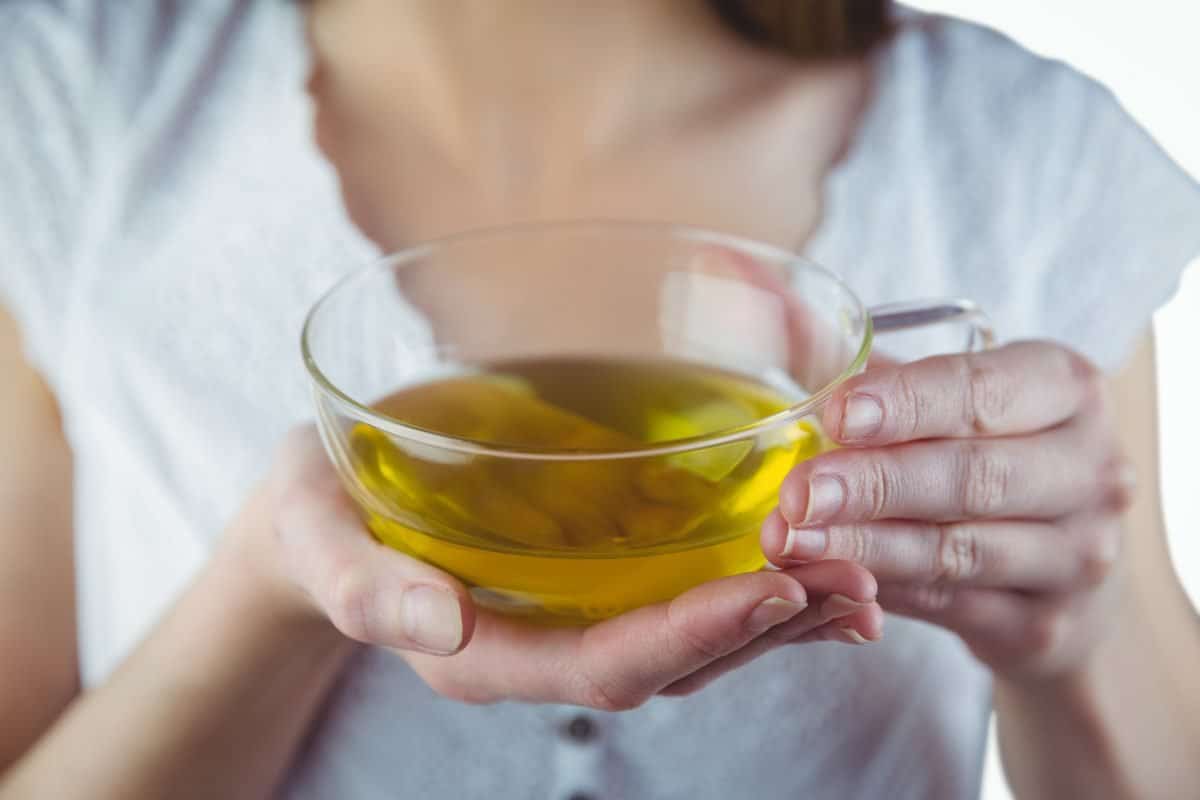Herbal tea for constipation
- Dietary Advice (non Low FODMAP)
In this article, we will explain whether there is such a thing as herbal tea for constipation.
Constipation is a common condition that affects many people at some point in their lives.
There are many claims online about herbal teas being able to help with constipation, but very few actually do.
In this post, we will explain the science behind which herbal teas work for constipation and which are just fads.

Herbal tea for constipation – how does it work?
There are multiple claims about using herbal tea for constipation.
All tea will help towards constipation as it helps us stay hydrated, but only a few teas have a ‘special’ constipation effect.
This ‘special’ effect mainly comes from some herbal teas containing FODMAPs. FODMAPs are types of carbohydrates that can create gas and draw fluid to the large bowel.
You need to be aware that FODMAPs can cause symptoms in people with IBS.
You can read more about The Low FODMAP diet here.
Herbal teas for constipation – which teas will work?
- Senna Tea
- Dandelion Tea
- Fennel Tea
- Chamomile Tea
- Teas containing chicory root
Herbal teas that work for constipation: senna tea?
Senna is a natural herb commonly used as a stimulant laxative to alleviate constipation by promoting bowel movements.
Senna works by stimulating the intestines’ muscles, helping improve colonic motility without affecting stool consistency (1).
Is chamomile tea good for constipation?
Yes, chamomile tea is good for constipation due to the high FODMAP content of fructans (2).
Fructans are a type of carbohydrate made of chains of fructose. Fructans are prebiotics, so they feed gut bacteria and add bulk to the stool, which makes it easier to push out.
Chamomile is also known for its calming properties and is often used to promote relaxation. Studies show the effectiveness of camomile in reducing the severity of generalised anxiety disorder (GAD) (3, 4).
Due to the connections between the gut and the brain, any method which helps improve mental health could have a beneficial impact on gut health.
Is dandelion tea good for constipation?
Strong dandelion tea may help constipation due to the FODMAP fructan content as with the chamomile tea (2).
Dandelion tea is made from the roots or leaves of the dandelion plant.
Please note: It should be consumed cautiously and in moderation, as it has diuretic properties, which can lead to electrolyte losses (5).
Is ginger tea good for constipation?
Ginger has been traditionally used as a natural remedy for constipation. However, there is no research or scientific theory to prove the laxative effect of ginger.
Ginger may not help with constipation, but studies show it is effective in (6, 7, 8):
- Treating nausea and vomiting in pregnancy
- Treating nausea in children with acute gastroenteritis
- Treating acute chemotherapy-induced nausea
Can peppermint tea be a laxative?
No, currently, there is no evidence of the laxative effects of peppermint tea.
Peppermint is a herb known for its refreshing and cooling properties. It has been shown to help IBS, reducing abdominal pain, discomfort, and IBS severity (9, 10).
Click here to read more about peppermint tea & IBS.
You can also read more about peppermint oil capsules here.
Side effects of herbal teas
Herbal teas are a natural drink, and you might not think of any possible side effects of herbal teas, but unfortunately, they exist.
Herbal teas can interact with certain medications, including prescription drugs, over-the-counter medications, and supplements.
It is essential to consult with a healthcare professional or pharmacist to check for potential interactions before consuming herbal teas, especially if you are taking medications.
Other side effects of herbal teas, such as peppermint or ginger, are gastrointestinal issues in sensitive individuals. This can include symptoms like heartburn and stomach upset.
It is important to moderate your intake and stop consuming the tea if you experience any discomfort.
What to drink when constipated?
Besides water and herbal teas, you can also drink coffee, milk, and fruit juices in moderation.
Aim to drink around 35mls / kg body weight daily (11).
If drinking plain water is dull, add some slices of lemon or orange to the water to make it more interesting. You can also experiment with different herbs, such as fresh peppermint leaves.
It is crucial to drink a sufficient amount of liquid to prevent dry and hard stools. An indicator of good hydration is the pale yellow colour of the urine.
What is constipation?
Constipation is a condition characterised by infrequent bowel movements and difficulty passing stools.
However, symptoms vary in severity (12).
Symptoms of constipation are:
- Hard and lumpy stools (1-3 types of stools according to Bristol Stool Chart)
- Bloating
- Abdominal pain
- Incomplete evacuation
Common causes of constipation include:
- A low-fibre diet
- Dehydration
- Sedentary lifestyle
- Iron supplements etc.
To learn more about constipation, read our article “What is constipation and how can you treat it.”
What helps constipation fast?
Coffee
Coffee contains caffeine and some other compounds which stimulate intestinal and colon muscles. This can increase the need to defecate (13, 14).
Physical activity
Physical activity stimulates the muscles in the digestive tract, which can help to move food through the intestines.
The World Health Organisation recommends at least 150-300 min of moderate activity daily (15).
Summary
Some herbal teas can help relieve constipation. Senna tea stimulates muscles in the intestines, which promotes bowel movements.
Other herbal teas with potential benefits on constipation are high FODMAP teas: chamomile, dandelion, fennel, and teas containing chicory root.
Drinking herbal tea can also help you drink enough liquid to prevent hard stools.
Beware of the side effects of herbal teas. Consult your GP or pharmacist to check whether you can consume herbal tea with your medication or supplements.
Written by Barbara Lešnik, Student Dietitian, reviewed by Kirsten Jackson, Consultant Dietitian BSc Hons, RD, PG Cert